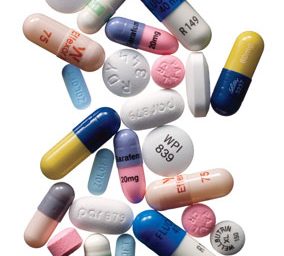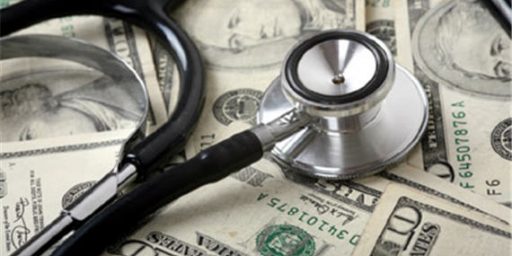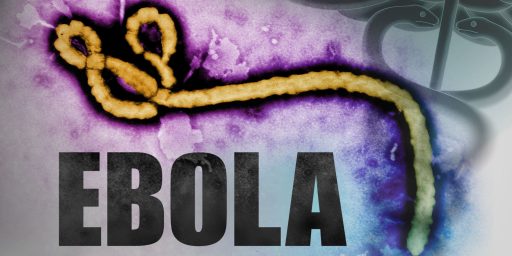Study: Antidepressants Do Not Work
Some depressing news from a British medical journal: antidepressants are not very effective.
Antidepressant efficacy may be overblown-experts (Reuters)
Antidepressants, for the most part, do not provide meaningful benefit, two investigators in the UK argue in a report in the British Medical Journal this week, having reviewed published medical evidence on antidepressant efficacy. Most people with depression are often initially prescribed an antidepressant by their doctor. Prescriptions for these medications have risen dramatically in the last decade.
In an interview with Reuters Health, Dr. Joanna Moncrieff, an author of the report, said, “I do not think there is such a thing as a drug that will specifically relieve depression. I think so-called antidepressants are just drugs that do other things, such as sedating or stimulating people.” In fact, she continued, “I am skeptical as to whether there is a biochemical syndrome of depression despite the portrayal by the drug companies and some psychiatric literature.” Moncrieff, a lecturer at the University College London and co-chair of the Critical Psychiatry Network, describes depression as a condition that “should be dealt with without drugs, because it’s something people need to learn to deal with themselves.” Dr. Irving Kirsch of the University of Plymouth is a co-author of the report.
In response, Dr. Darrel Regier, director of the Division of Research at the American Psychiatry Association, told Reuters Health that Moncrieff and Kirsch have “written an article that selectively pulls out negative studies and conveniently ignores or mischaracterizes positive studies.” “The interesting issue,” he said, “is that it is now medical malpractice not to treat major depression with medication. If in fact there were nonsignificant differences (between antidepressants and placebo), that would not be the standard of care.”
That there is a biochemical disorder called “depression” is rather well established. Indeed, as we better understand brain chemistry and genetics, we seem to be finding that most of the things we think of as simple personality characteristics are actually hard wired.
What is also rather bizarre is the claim that the drugs do not treat depression but rather its symptoms, especially when coupled with the claim there is no such thing as depression. How would one run a control if that’s the case? It’s not as if there is a blood test one can perform to track the level of “depression” in a person’s system. Rather, one monitors symptoms. So, if the drug improves the symptoms without creating negative side effects that outweighs the benefits, then it is doing its job.






It’s great to see the truth about these drugs finally coming to view. There’s more about the hoax of chemical imbalance here.
Tom Cruise will be glad to hear about this!…If Hillary becomes President I know many, many people who are counting on antidepressents to help them through another Clinton Era…
I have to disagree with the British study because of personal experience. I had a medical emergency where my heart stopped twice in the ER. Afterwards my doctor told me as a result my brain stopped producing serotonin, a neurotransmitter that effects emotion. I was unaware of this but my now ex wife brought it to my attention that I had become short tempered and depressed. So, my doctor put me on a serotonin replacement for 6 months. After that, I was taken off and have been fine ever since
Placebo affect could be at work.
Hard to say, I have no personal experience with either the disorder or the drugs that treat it.
About two-thirds of depressed people feel better after taking an antidepressant drug. This is about the same number of people who feel better after taking a placebo. For more information, see:
http://www.astrocyte-design.com/pseudoscience/index.html
(And no, I am not in any way associated with Scientology).
“Critical psychiatry is part academic, part practical. Theoretically it is influenced by critical philosophical and political theories…”
This is from the “Critical psychiatry network”‘s own website, http://www.critpsynet.freeuk.com/
This does not invalidate their study as such, but it makes me skeptical of their methods, as does the fact that their essay explaining “critical psychiatry” begins with a paragraph primarily concerning British National Health Service politics.
I would be concerned that these studies are politically motivated, and furthermore that this motivation may — may — have introduced bias into the study.
A complete analysis (including statistical) would take more time than I currently have, alas.